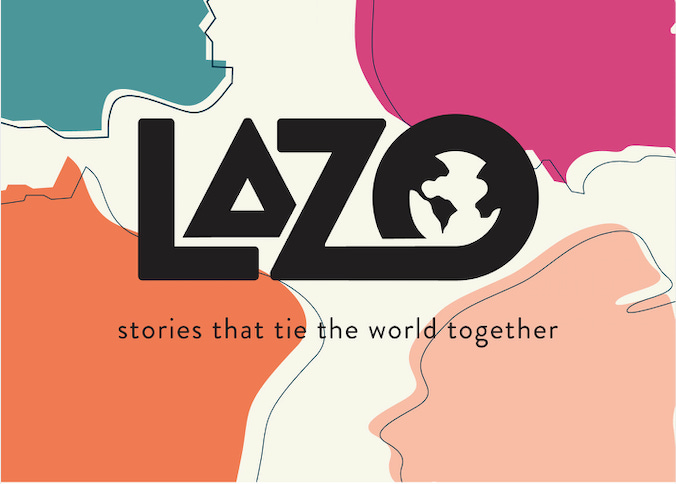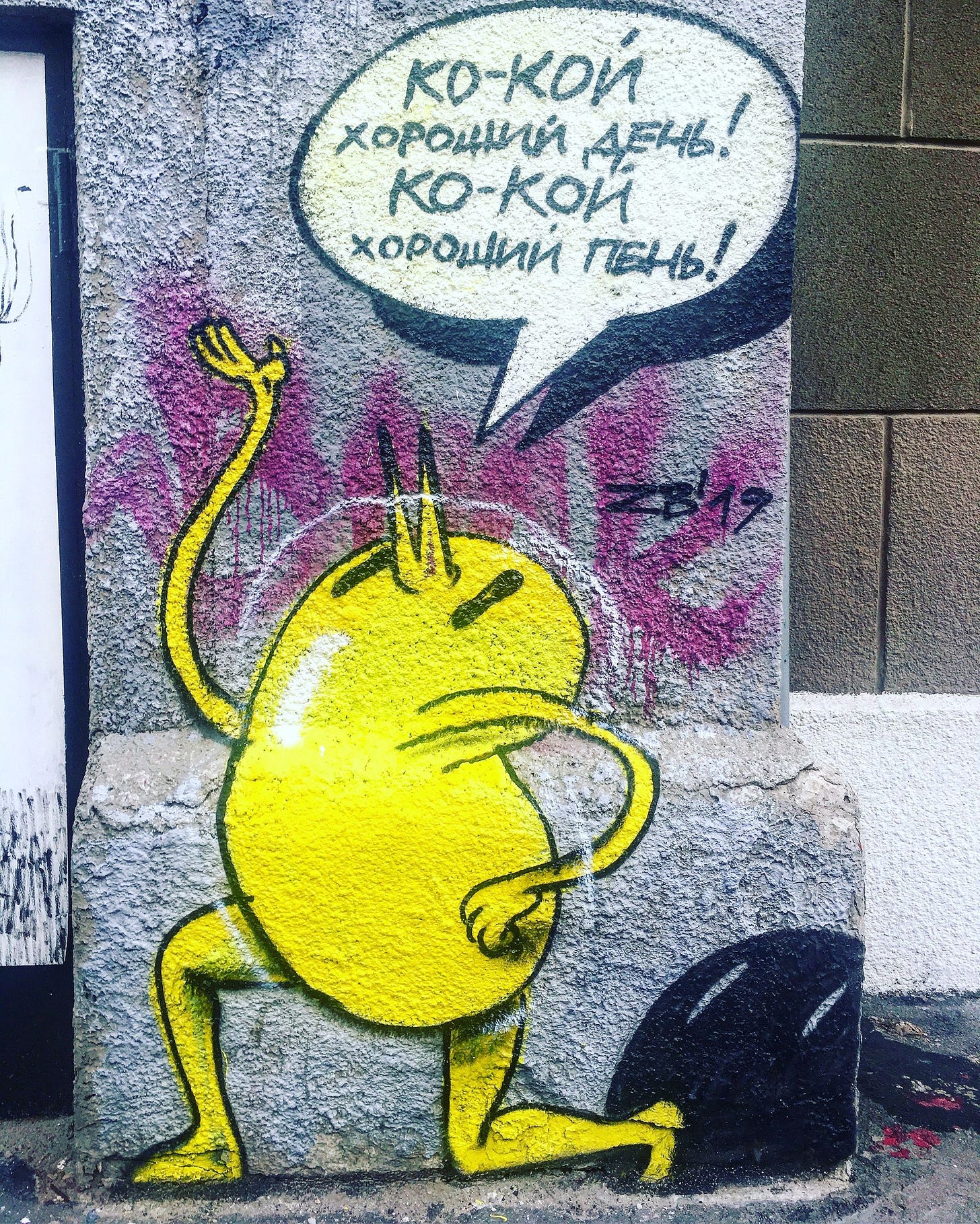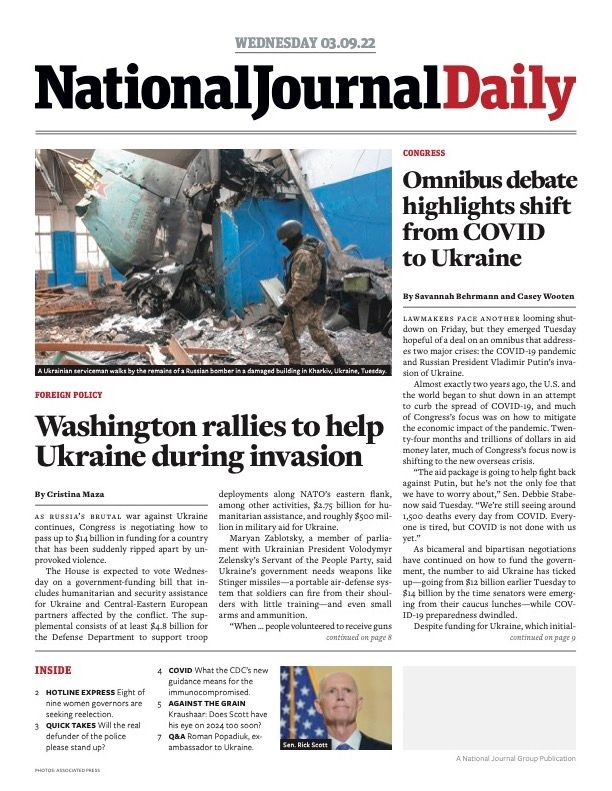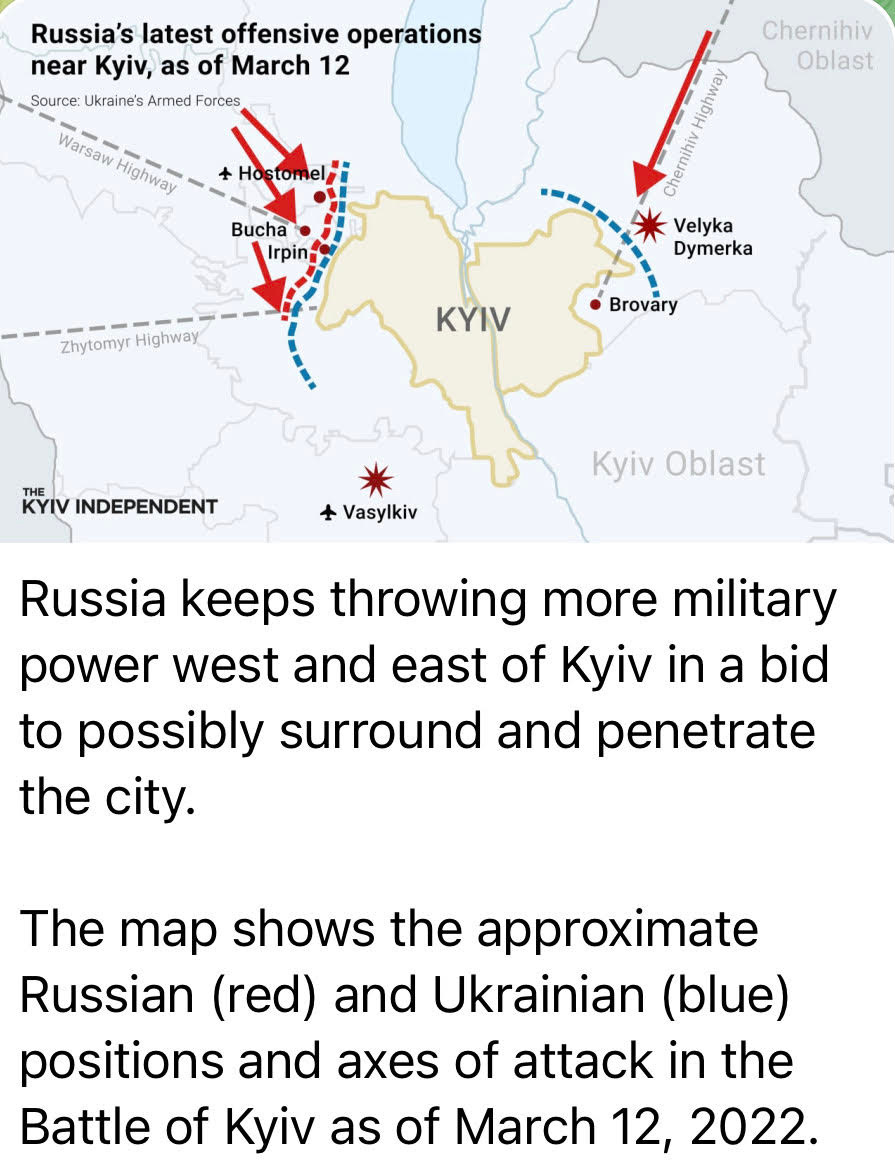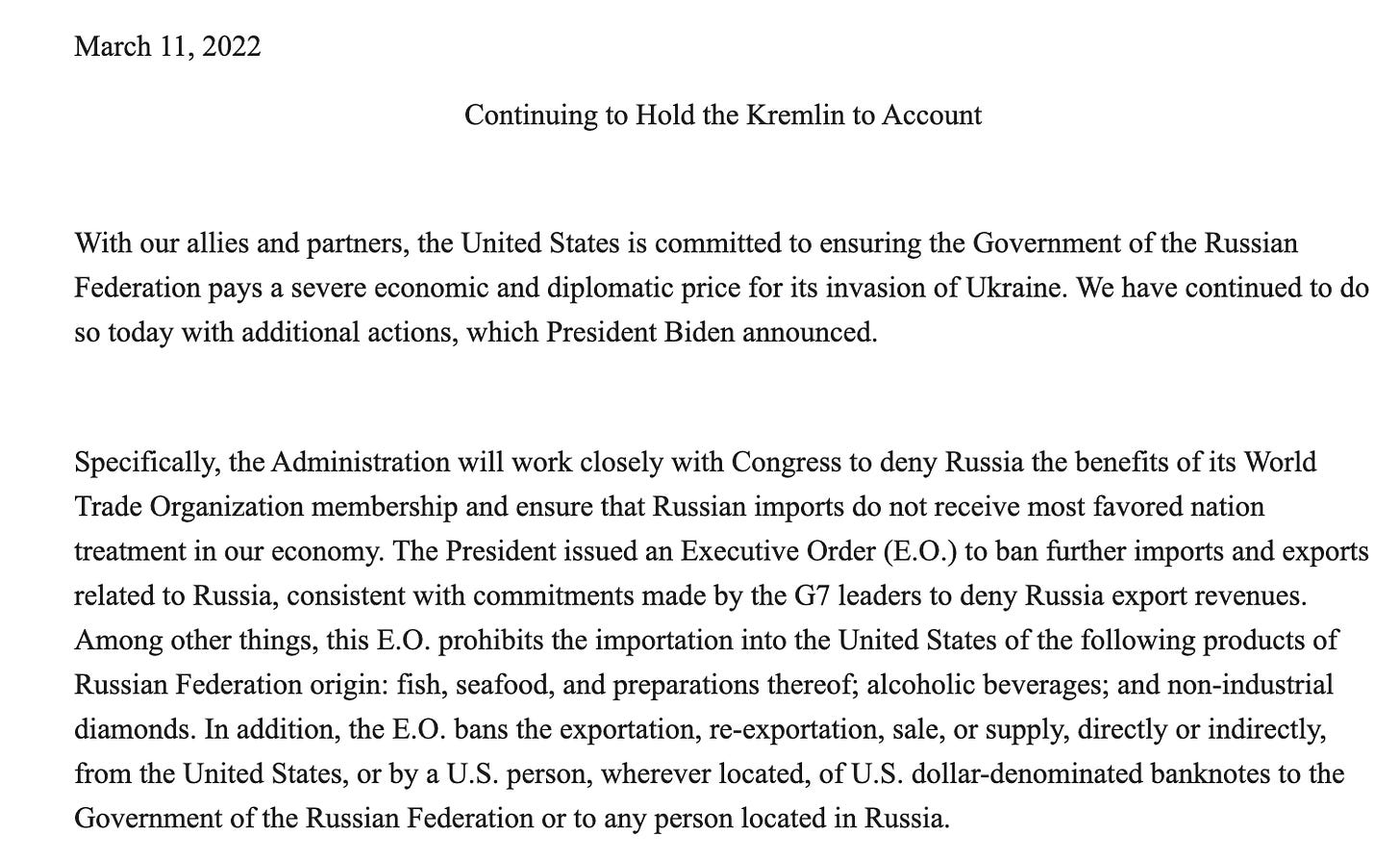Ukraine really wants a no-fly zone.
Lately, I have spent each day talking to people in Ukraine or trying to get out of Ukraine. They send me photographs, some of them gruesome. One morning, I woke up to a picture of a severed head next to a severed leg, the remains of a neighbor of one of my sources killed in a Russian airstrike. Every day I receive photographs of rubble that were once someone's home.
Everyone I speak to begs for NATO to enforce a no-fly zone over Ukraine. We could win this war if you closed the skies, they tell me. I understand why they ask. But NATO won't close the skies because that would mean a direct confrontation with Russia, which could lead to nuclear war and even more needless death.
Meanwhile, people tell me stories about their grandmothers dying. A man lost his entire family in one day because his wife stayed behind to help her mother with Alzheimer's. Another man said he witnessed Chechen fighters shoot people and hijack their cars.
"Women and babies are sleeping on the ground," a man texted me this morning from Poland, along with a photograph of families sleeping rough.
There doesn't seem to be a good way to stop this. Here's a picture from Kharkiv that I took a few years ago. Parts of the city have since been leveled to the ground.
If you enjoy this newsletter, please share it with a friend, share a link on social media, or upgrade to a premium subscription for $2 a month if you can afford it. And please don't hesitate to get in touch with recommendations for what I should feature here: c.maza@protonmail.com.
The Washington Post has information about how you can help Ukrainians.
Upgrade to a premium subscription by Clicking Here
What I'm writing:
• I spoke to Americans, Georgians, Belarusians, and even a Russian, who are fighting for Ukraine as volunteers. They all had wildly different reasons for going. A Belarussian told me the future of his country would be decided in Ukraine. An American veteran said he wanted to prevent a refugee crisis like the one that took place after the U.S. withdrawal from Afghanistan. [This article is unlocked].
• Tough international sanctions have isolated Russia. But the economic shock could also reverberate across the region to countries like Kazakhstan, Kyrgyzstan, and Armenia, which rely on Russia’s exports and are entwined with its economy [This article is unlocked].
• Washington rallied this week to find ways to support Ukraine, including with military assistance. An MP from President Zelensky's party told me the country has a gun shortage. “It seems like everybody is in search of any kind of gun," he said. "The popular joke in Ukraine is, ‘Who do I have to bribe to go and defend my country?’”
• You can listen to me talk to Julie Mason on Sirius XM about the latest from Ukraine and what is going on with Poland's transfer of fighter jets to Kyiv.
What I'm reading:
• Congress approved a spending package this week with $13.6 billion in emergency aid for Ukraine, NPR reports.
• Three cities – Dnipro, Lutsk, and Ivano-Frankivsk – in central and western Ukraine were bombed Friday morning, the New York Times reports.
• Russia threatens to target foreign military aid convoys to Ukraine, CNBC reports.
• Ukraine's Defense Ministry claims that Russian forces shot at evacuating civilians, killing seven, the Kyiv Independent reports.
• Russia shelled residential areas in Kharkiv 89 times in one day, the Guardian reports.
• A Russian airstrike that reportedly killed 47 civilians queueing for bread in Chernihiv may constitute a war crime, an Amnesty International investigation found.
• The term humanitarian corridor was first used during the war in Bosnia when the United Nations set up so-called safe areas for civilians. The Associated Press has an interesting analysis of how humanitarian corridors have been used in Syria and what that means for Ukraine.
• Ukrainian officials are urgently asking for medical supplies and support as they try to push back Russian forces, my colleague Erin Durkin reports for National Journal.
• National Journal's White House correspondent George Condon interviewed the first U.S. ambassador to Ukraine, Roman Popadiuk, on what surprised him about the war, how it might end, and the long-term geopolitical ramifications.
• The massive Russian convoy of military vehicles that stretched more than 40 miles has largely dispersed and redeployed, according to new satellite images reported on by Al Jazeera.
• Russia is demanding that Ukraine ceases military action, changes its constitution to ensure neutrality, acknowledges Crimea as Russian territory, and recognizes the separatist republic of Donetsk and Lugansk, Reuters reports.
• Russia’s defense ministry claimed it obtained secret documents that prove Kyiv was planning an attack on the Russian-backed separatists in eastern Ukraine, the BBC reports.
• Russia could be planning a chemical or biological weapons attack in Ukraine, the White House said. The BBC has the report.
• Russia is recruiting Syrians skilled in urban combat to fight in Ukraine, according to the New York Times and the Wall Street Journal report, citing U.S. officials.
• Russian President Vladimir Putin approved 16,000 volunteers in the Middle East to fight in Ukraine, Reuters reports.
• Officials in Washington and Europe are preparing for a Ukrainian government-in-exile and a lengthy insurgency against any Russian occupation, the Washington Post reports.
• Australia committed $50 million to fund lethal defensive weapons for Ukraine, including missiles and ammunition, Reuters reports.
• Kazakhstan, one of Russia's closest allies, will send more than 80 tons of humanitarian aid to Ukraine, the Washington Post reports.
• The United Kingdom sanctioned Chelsea Football Club owner Roman Abramovich as part of its response to Russia’s invasion of Ukraine, the BBC reports.
• The EU will formally assess applications from Ukraine, Georgia, and Moldova to join the bloc, the French EU presidency announced.
• But the European Union will not speed up its accession process, bend its rules and requirements for joining, or allow Ukraine and others to jump to the front of the line, the New York Times reports.
• Hungarian Prime Minister Viktor Orbán signed a decree allowing NATO troops to deploy in western Hungary and weapons shipments to cross Hungary’s territory to other NATO member states, Reuters reports.
• Hungary’s parliament elected a lawmaker from the ruling Fidesz party, Katalin Novak, as the country’s first woman president, buttressing Hungarian Prime Minister Viktor Orbán’s nationalist agenda, Reuters reports.
• A drone flew over several NATO countries all the way from the Ukrainian war zone and crashed on the outskirts of the Croatian capital, Zagreb, ABC News reports.
• Lithuania’s parliament imposed a strict state of emergency over Russia’s invasion of Ukraine, limiting rights to freedom of expression and peaceful assembly, Reuters reports.
• Russia’s invasion of Ukraine placed Serbian President Aleksandar Vučić in an acute dilemma and put the Balkan country at odds with the EU, the United States, and other powers as it refuses to impose sanctions on Moscow, Una Hajdari reports for Politico Europe.
• The European Parliament adopted a resolution condemning China, Russia, and Serbia for selling arms to the military junta in Myanmar, Balkan Insight reports.
• Read Susie Armitage's dispatch for the Guardian from Brighton Beach, New York, where immigrants from former Soviet Republicans are taking down their Russian flags.
• U.S. officials are increasingly concerned that Sudan’s military junta will allow Russia to build a naval base on the country’s strategic Red Sea coast, the Wall Street Journal reports. I wrote about this plan for CEPA when it was floated in 2020.
• Senior U.S. officials traveled to Venezuela to meet the government of President Nicolás Maduro as the Biden administration steps up efforts to separate Russia from its remaining international allies, the New York Times reports.
• Following the meeting, the New York Times reports that Venezuelan President Nicolás Maduro signaled a willingness to increase his country’s oil production.
• Venezuela’s authoritarian government released two imprisoned Americans, signaling a potential turning point in the Biden administration’s relationship with Russia’s staunchest ally in the Western Hemisphere, the New York Times reports.
• Two Yemeni-American women held in Yemen were freed in a mission by U.S. and Saudi special forces, the BBC reports.
• Indian Prime Minister Narendra Modi’s party will remain in power in Uttar Pradesh, India's most populous state, the New York Times reports.
• The Biden administration accused North Korea of testing components for a large new intercontinental ballistics missile, described by a senior U.S. official as a “serious escalation” of a weapons program that could threaten U.S. cities, the Washington Post reports.
• A coalition of 192 human-rights organizations, including Human Rights Watch and Amnesty International, issued an open letter on Tuesday calling on the U.N. to publish a long-delayed report on Chinese government actions targeting Uyghurs and other Turkic Muslim groups in Xinjiang, the Wall Street Journal reports.
What the State Department says:
Upgrade to a premium subscription by Clicking Here.
You can also contact me for any reason by writing to c.maza@protonmail.com.





